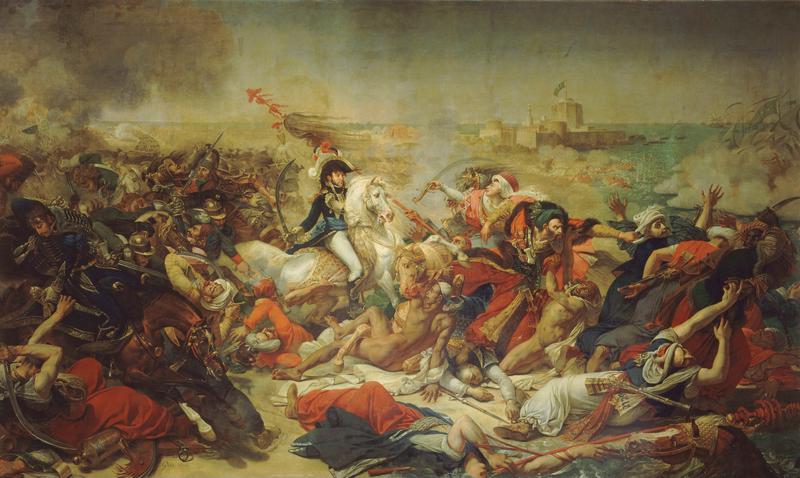Napoleon Bonaparte – A Legend
By | November 11, 2018

Battle of Aboukir, 25 July 1799, 1806. Artist: Gros, Antoine Jean, Baron (1771-1835)
Napoleon has been recognized worldwide as a military genius. Many films have been made about him and he has had many streets, towns, and even ships named after him.
Napoleon was a legacy, not only in politics but also in culture. Rising up rapidly through the military ranks, he became a general at the young age of 24 and by age 26, was already in his first military campaign against Austria and winning almost every battle.

As a young child, it was his mother who was a very strict disciplinarian with him as he was a rambunctious child. When he was just nine years old, he enrolled in a religious school in January of 1779 and later, in May of that same year, transferred to a military academy. Interestingly, he spoke and read Corsican rather than French as that was his mother tongue. It was later, at the age of 10, that he learned to speak French and became fluent in it. While a young adult, he had wanted to become a writer and actually wrote a romantic novella. His physical appearance was quite captivating and when his contemporaries met him in person, they were surprised by his small and thin stature based upon his reputation. Described by some as having a dark complexion as well as dark black hair, others have described him as having an average appearance with reddish blonde hair.

In 1796, Napoleon married his first wife, Josephine de Beauharnais who already had two teenage children. By 1809, when he did not yet have any children with Josephine, he had the marriage annulled and found a new wife. He married his second wife, Marie Louise in 1810, who was the daughter of the emperor of Austria and they did have one son who they named Napoleon Francois Joseph Charles Bonaparte. His son became known as Napoleon II and received the title of King of Rome. Besides this son, Napoleon had many other illegitimate children. During the French Revolution, Napoleon was a military leader, who became very prominent and very successful. He was also the Emperor in France from 1804 until 1814. During this time, he led France in many coalitions and won most of the wars, which helped him to obtain a huge empire that was in control of continental Europe until the final collapse in 1815.

The battle that brought about Napoleon’s downfall was the one with Russia in 1812. Because Russia withdrew from the Continental System in 1810, Napoleon retaliated by leading a massive army. Russia’s strategy was to retreat rather than fight whenever his forces tried to attack, which caused his troops to get deeper and deeper into Russia. The battle started out in the summertime and they did not prepare for a lengthy battle. While both sides had suffered a loss in the Battle of Borodino, Napoleon’s forces continued on to Moscow but when they got there, there was almost no one there. Everyone had disappeared. As the Russians left the city, they set it on fire so that they would not be able to get supplies. Napoleon waited for a month for them to surrender but they did not. By this time, winter was coming on them so he had to send his troops who, by this time, were starving and exhausted, out of Moscow. While they were in this state, it was then that the Russian troops emerged on them. Only 100,000 out of 600,000 troops made it out of Russia alive.



